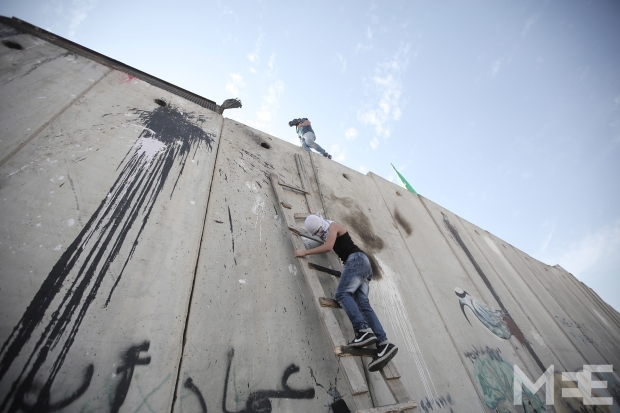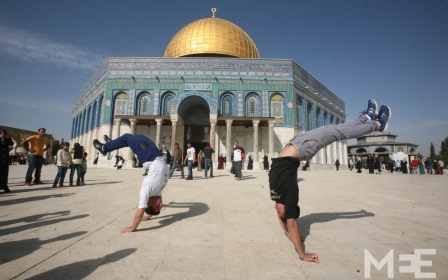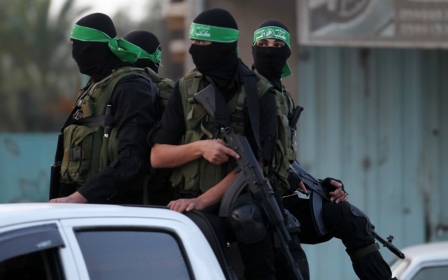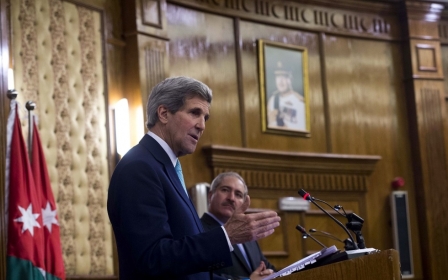Thousands of Palestinians protest in Israel and West Bank
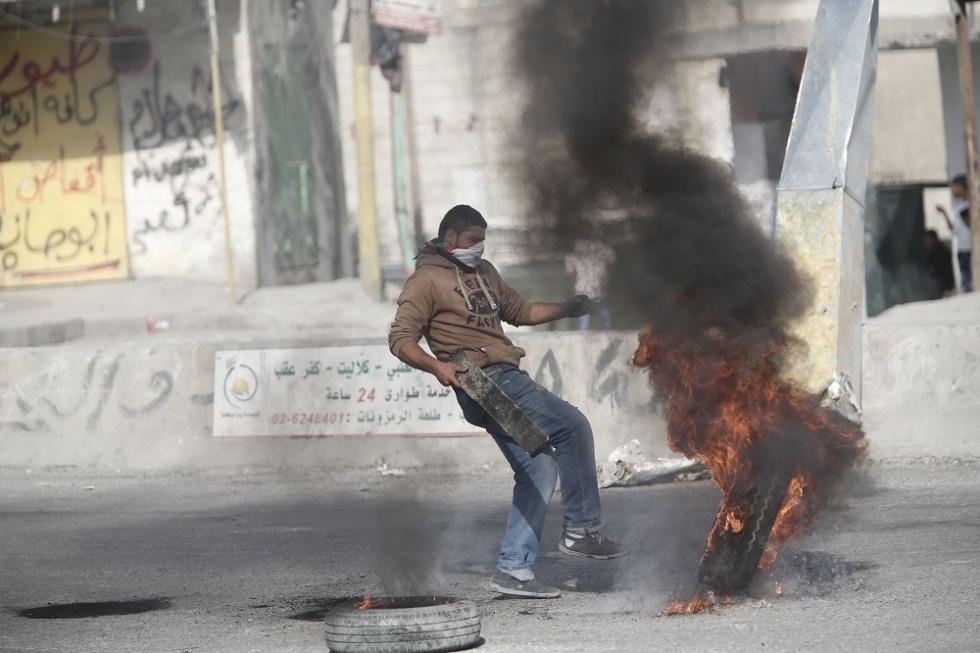
Thousands of Arab Israelis took to the streets of Israel on Friday to protest at what they call Israeli assaults on al-Aqsa Mosque.
They were also demanding the prosecution of Israeli police who killed a 20-year old Palestinian man in northern Israel on 7 November.
Leading the protests in Umm al-Fahm, an Arab Israeli town in Haifa District, were Raed Salah, head of the Islamic Movement in Israel, and Arab Knesset members Haneen Zoabi and Afu Agbaria.
Hundreds of Palestinians also protested across the occupied West Bank on Friday in a campaign calling for free passage to Jerusalem and an end to the occupation, activists said.
Protests took off from a number of locations and targeted symbols of the occupation, including the separation wall built by the Israeli government that cuts the West Bank off from Jerusalem, the city which many Palestinians hope will be the capital of their future state.
“The protesters weren’t successful in getting into Jerusalem but they entered roads that are specifically for Jewish settlers; they created a checkpoint and prevented settlers from advancing while Palestinian cars got through,” Abdullah Abu Rahma, one of the protest organisers, told the Middle East Eye in a telephone call on Friday.
Hundreds of protesters left from the Qalandiya refugee camp after Friday prayers, while another protest headed to Hizma, a Palestinian village that is cut off from Jerusalem by a chain of Israeli settlements and the separation wall.
The Israeli army responded with tear gas, stun grenades, rubber bullets and live ammunition.
Dozens of protesters, who also included international solidarity activists, were lightly injured by rubber bullets, medics said.
The protest campaign today has been days in the making, Abu Rahma said, organising under the protest banner “to Jerusalem we go."
A few dozen of the protestors also managed to climb over the separation wall – called a security wall by Israeli authorities – making it the latest high-profile venture to target the structure.
“At around 10:00 local time, a group of about 50 protesters were successful in breaking into an Israeli [military] airport at Qalandiya, near Jerusalem, which is surrounded by the racist wall,” Abu Rahma said, referring to the separation wall.
“Through their will and creativity they managed to put up foot bridges and cut the barbed wire to cross the wall, reach the airport and raise the Palestinian flag there.”
An Israeli police spokesperson confirmed the incident, but did not give further details.
The protests come despite meetings in Amman on Thursday between US Secretary John Kerry, Israeli Prime Minister Benjamin Netanyahu and Jordanian King Abdullah II, during which promises were reportedly made to take “real steps” to alleviate tensions between Israelis and Palestinians.
Kerry also held separate meetings with Palestinian President Mahmoud Abbas in the Jordanian capital, apparently winning reassurances that he too would work to quell unrest and violence.
No specifics were revealed, but this morning Israel moved to end age restrictions at the al-Aqsa mosque, spurring 40,000 Palestinians to visit the mosque for Friday prayers.
In a press conference following the day of meetings in Amman on Thursday, Kerry repeatedly stressed that the three leaders had agreed to restore the status quo to al-Aqsa.
This was seemingly a reference to a deal signed between Jordan and Israel in 1967, according to which Jordan administers Jerusalem’s Holy Sites, which many Palestinians had thought was under attack.
In an interview with Israel’s Channel 10 earlier this week, Israeli Foreign Minister Avigdor Lieberman and Defense Minister Moshe Ya’alon, both members of the right-wing Jewish Home party, admitted that the violence had at least been partly stoked by ministers and Knesset members who defiantly visited the Temple Mount.
However, Palestinian National Initiative General Secretary Mustafa al-Barghouthi on Friday told Sky News Arabia that despite the Amman meeting, he did not feel that Israel had offered any concessions on the issue of Jerusalem.
“Israel has not offered any appeasement in Jerusalem,” the left-wing politician, who is not part of the ruling Fatah Party or the PA, said.
Al-Aqsa, known as Temple Mount to Jews, is held sacred by both religions.
However, access for Muslims to al-Aqsa has regularly been limited to women and men over the age of 40 or 50, particularly during times of heightened political tension.
Under a deal signed with Jordan, tourists and Jews can enter the large majority of the compound on weekdays but are prohibited from praying or performing religious ceremonies.
The recent round of restrictions and growing pressure by right-wing Jews who want greater access and prayer rights at al-Aqsa are considered to be linked to the spike in violence seen in the last few months, with almost daily clashes breaking out between Palestinian youths and Israeli police in East Jerusalem.
Recent weeks have also seen three separate car attacks targeting Israeli pedestrians.
Palestinians have long called for an end to Israel’s occupation of the Palestinian territories, which also include East Jerusalem and the Gaza Strip - however, continuous building of Israeli settlements and military checkpoints increase tensions between Palestinians and Jews.
Israel built the separating wall over a number of years, starting from the second Palestinian intifada (uprising) between 2000 and 2005, in an attempt to stop Palestinian attacks against Israel launched from the West Bank.
Some Palestinians continue to insist that even with the apparent easing of restrictions at al-Aqsa, tensions will remain.
“We don’t want occupation-lite,” said Abu Rahma. “We want a complete end to the occupation, and we’ll continue protesting until that happens.”
New MEE newsletter: Jerusalem Dispatch
Sign up to get the latest insights and analysis on Israel-Palestine, alongside Turkey Unpacked and other MEE newsletters
Middle East Eye delivers independent and unrivalled coverage and analysis of the Middle East, North Africa and beyond. To learn more about republishing this content and the associated fees, please fill out this form. More about MEE can be found here.


